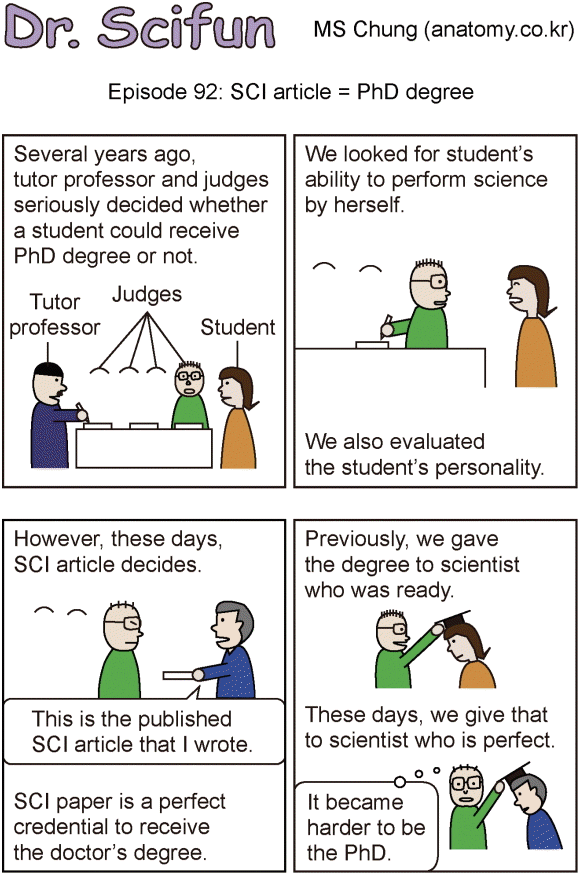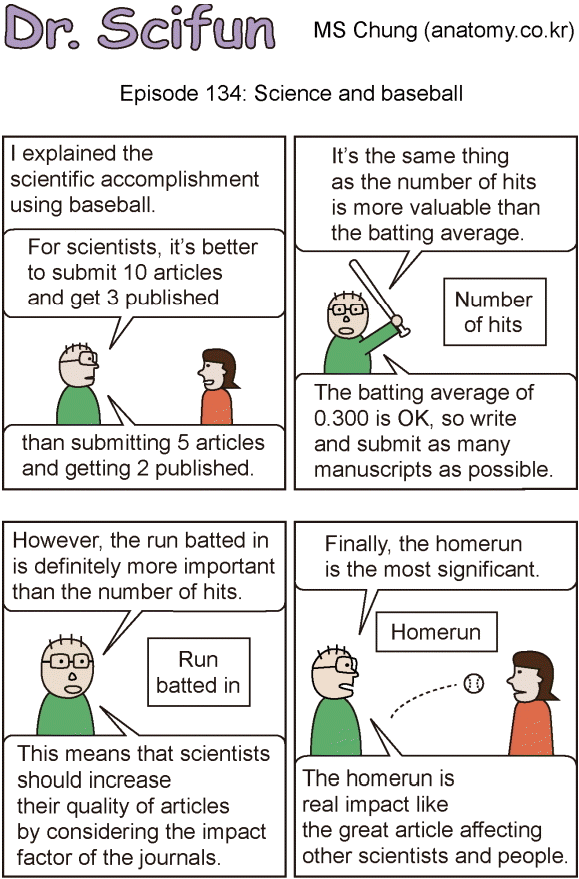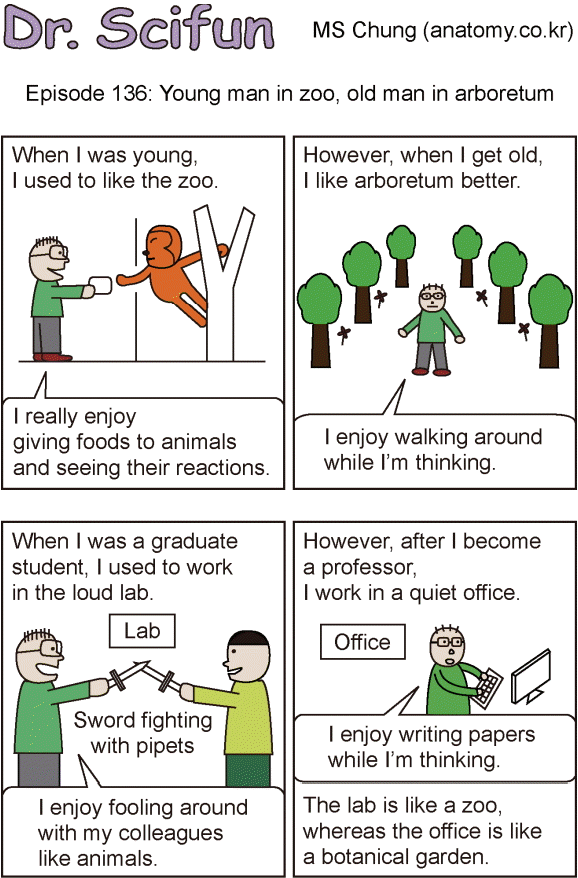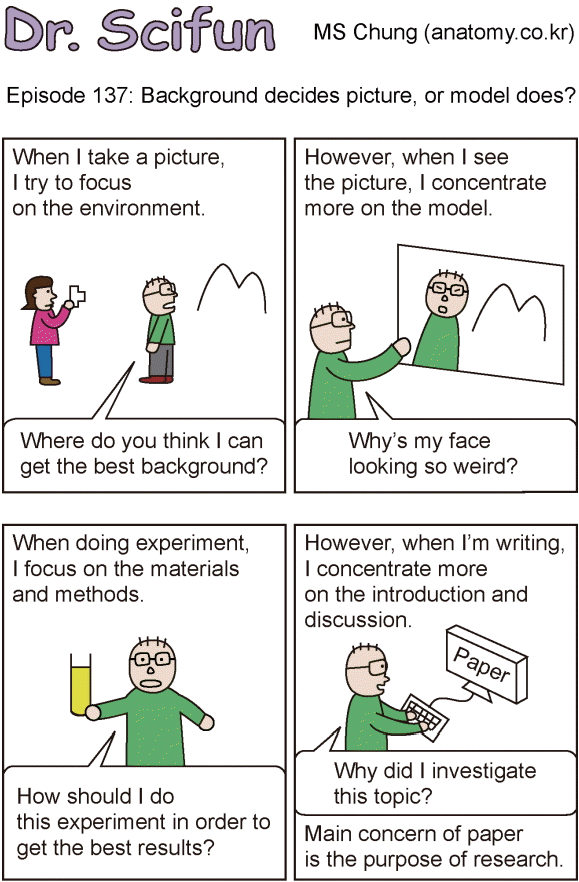Articles
- Page Path
- HOME > Sci Ed > Volume 3(1); 2015 > Article
-
Science Cartoon
SCI article = PhD degree -
Beom Sun Chung
 , Min Suk Chung
, Min Suk Chung
-
Science Editing 2016;3(1):60-62.
DOI: https://doi.org/10.6087/kcse.66
Published online: February 19, 2016
Department of Anatomy, Ajou University School of Medicine, Suwon, Korea
- Correspondence to Min Suk Chung dissect@ajou.ac.kr
• Received: October 19, 2015 • Accepted: January 12, 2016
Copyright © Min Suk Chung
This is an Open Access article distributed under the terms of the Creative Commons Attribution Non-Commercial License (http://creativecommons.org/licenses/by-nc/3.0/) which permits unrestricted non-commercial use, distribution, and reproduction in any medium, provided the original work is properly cited.
- 10,023 Views
- 141 Download




-
Acknowledgements
- This work was supported by the National Research Foundation of Korea (NRF) grant funded by the Korean Government (MSIP) (no. 2015R1A5A7037630).
Figure & Data
References
Citations
Citations to this article as recorded by 


 KCSE
KCSE
 PubReader
PubReader ePub Link
ePub Link Cite
Cite

